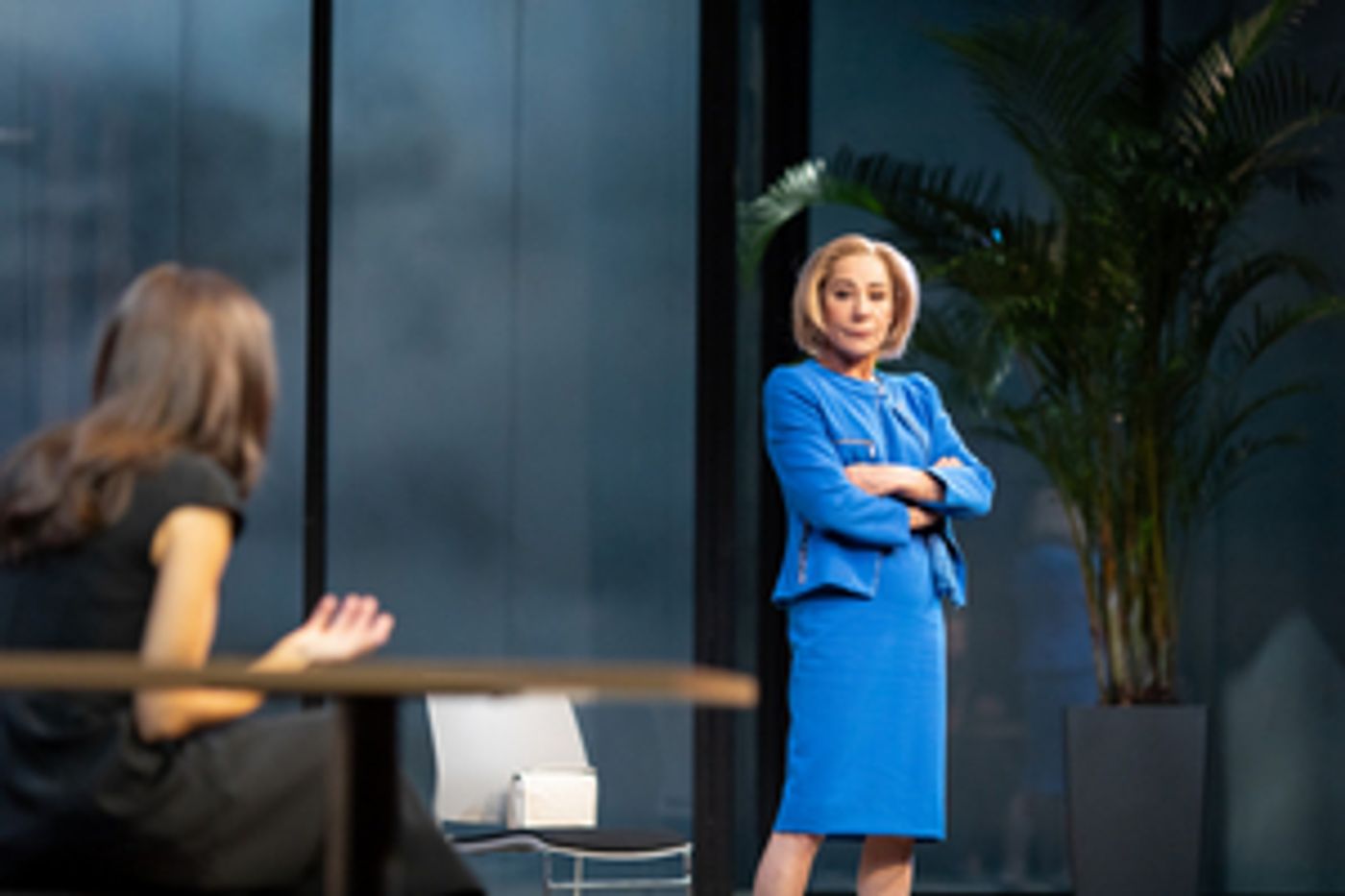Review: TWO LADIES, Bridge Theatre

![]() At the G7 summit last month, the wives of the world leaders were pictured together by Donald Tusk walking not across a zebra crossing as per The Beatles but through a garden. Tusk's caption described them as "the light side of the Force." Yet, this picture did little to suggest these women were anything like the feisty Princess Leia, the colour of their clothing - a mix of yellow, red, pink and white - unhelpfully instead implying they were flowers.
At the G7 summit last month, the wives of the world leaders were pictured together by Donald Tusk walking not across a zebra crossing as per The Beatles but through a garden. Tusk's caption described them as "the light side of the Force." Yet, this picture did little to suggest these women were anything like the feisty Princess Leia, the colour of their clothing - a mix of yellow, red, pink and white - unhelpfully instead implying they were flowers.
Nancy Harris's new play Two Ladies takes issue with the cliché of the wife of a man in power as being weak, sterile and merely a thing to be observed. When Helen (Zoë Wanamaker) and Sophia (Zrinka Cvitešić), find themselves locked in an office room during a lockdown after a political protest, their conversations revolve around what it means to be a wife and a woman when married to political leaders.
Anna Fleischle's set is perfectly corporate. An almost finished bottle of whiskey reminds us of the long-established paradigm that men are the dealmakers, the businessmen, and the leaders of state and nation (and, here, home). Whilst a small army of security, cleaners and PR reps occasionally come in, this is largely a two-hander piece.
Women's place in politics is clearly unfair: it goes without saying that they have to balance across lines the men don't have to. Had Teresa May or Margaret Thatcher ever participated completely in the loud-mouthed shouting exhibited by their male colleagues during PMQs, they would be called shrill. Don't participate at all and they are described as mousey and weak. Two Ladies should, for all intents and purposes, be an intriguing discussion about the lives of the women to whom power sits in an almost diagonal relationship: they are so close but blocked by the bodies of meat that are their husbands.
Sophia even suggests these women should be "symbols of a world where behind every great man is a silent woman in a design dress", and Harris's writing goes some way to portraying this. But the play never fully commits to giving both women enough autonomy. George Dennis' sound work typifies the problem: foreboding music creeps in as either woman gives a speech, the two clash, or they come upon a vital point, only for it to quickly dissipate. Then the play moves on to its next set piece.
Two Ladies rises and falls with little drive, and in the final fifteen minutes when the women take matters into their own hands with lipstick and perfume ("weapons they would never expect") does it sadly feel as if it is going anywhere. Yet perhaps that is the point: the play acutely demonstrates the impotence of these women. The consequence, however, is that the tone and pace of the work are unsettled and uneven.
Nicholas Hytner draws solid performances from Wanamaker and Cvitešić, but their talents are underutilised. Their movement feels choreographed to specifically match each beat of the script, adding to the over-riding sense of control. When they rarely show extremes of emotion, these outbursts feel incongruent with the play's measured atmosphere.
Sophia offers an obvious parallel for Melania Trump: she is beautiful, an ex-model, and, as is pointed out, married to a man who has mostly pursued anti-immigration policies despite herself being an immigrant. Helen also finds a parallel in Brigitte Macron as both met their now-powerful husbands when they were married teachers and him a young student. Whilst these connotations prompt laughs, especially at Sophia's expense, they also restrict the characters, and it may have been better if they were fictionalised to cut these characters loose from at least one string.
Of course, flowers in a garden can always be dangerous: some are poisonous, and others have thorns. At one point in Two Ladies, both Helen and Sophie circle around Georges (Yoli Fuller), a government aide. The imagery is clear: these women are angry, yet their threat is neutralised because of the play's insistence on their frustrated state. "Being a woman is always a talking point", Helen states. Sadly, Harris fails here to get the conversation truly going.
Two Ladies is at the Bridge Theatre until 26 October.
Photograph credit: Helen Maybanks.
Reader Reviews
Videos

